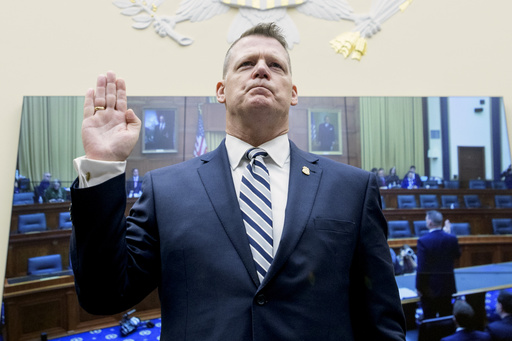The interim head of the Secret Service announced on Thursday that the agency is undergoing a significant overhaul in order to improve its operational culture and effectiveness, particularly after a recent assassination attempt on Donald Trump during his campaign.
Members of a bipartisan House task force scrutinized Ronald Rowe, the acting director, demanding explanations for how evident security flaws were overlooked leading up to the July 13 incident at a rally in Butler, Pennsylvania. The hearing became heated, featuring a contentious exchange between Rowe and a Republican lawmaker who expressed frustration over the agency’s oversight.
Rowe acknowledged the agency’s “complete failure” to secure the rally site, which resulted in Trump sustaining a minor ear injury, the death of one attendee, and injuries to two others when a gunman opened fire from a nearby building. This incident, combined with another assassination attempt two months later, has raised serious concerns about the agency’s security measures and preparedness.
In the latter incident, an assailant waited at Trump’s golf course in Florida, only to be thwarted when a Secret Service agent noticed a firearm concealed in the bushes. The task force’s investigations into both events largely focused on the rally shooting during Thursday’s session, amid a growing chorus of inquiries pointing to severe lapses in planning and communication within the agency. Following these events, the former director resigned, prompting the Secret Service to ramp up security for Trump leading up to his victory in the November election.
Lawmakers including Rep. Jason Crow from Colorado expressed disbelief that, despite technological advancements, the agency was still relying on basic forms of communication like text messages and emails to address real-time security threats. Crow questioned how so many failures could occur without anyone raising concerns during the rally.
Rowe admitted that the agency once fostered an environment that encouraged staff to speak out and that rebuilding this culture is crucial. He emphasized that there will be an increased focus on training — an area previously identified as lacking — along with consistent evaluations of events to determine successes and areas for improvement.
During discussions, Rowe revealed plans for reorganizing the agency, suggesting the need to identify potential leaders earlier in their careers rather than simply promoting individuals based on tenure. Although the hearing was primarily collaborative, tensions flared when Rowe and Rep. Pat Fallon from Texas had an intense exchange over the appropriateness of Rowe’s attendance at a September 11 memorial ceremony, with Fallon claiming it was a move to enhance his prospects for a permanent directorship.
Rowe, defending his presence at the event, expressed outrage at Fallon’s insinuations, calling for respect regarding the sacrifice of Secret Service agents. Fallon countered by accusing Rowe of putting on a façade, leading to an escalating argument that prompted calls for order from other lawmakers present.
This session marked the task force’s second public hearing, during which Rowe faced questions for the first time. The committee aims to release its final report by December 13. Tennessee Republican Rep. Mark Green criticized the agency’s performance during the July shooting, describing the response as lackadaisical and underscoring a troubling level of complacency within such a critical organization.
In preparation for their conclusions, task force members conducted 46 interviews, attended numerous briefings, and reviewed over 20,000 documents, including site visits to both assassination attempts and evidence examination at the FBI’s laboratory in Quantico, Virginia.
Rowe revealed that the results of the agency’s internal investigation, released last month, highlighted multiple failings among staff. He noted that the quality of security planning, particularly the advance work typically done prior to events, did not align with agency standards. He committed to holding accountable those responsible for the lapses in security during the rally.
A principal concern among investigators has been why nearby buildings, which had clear sightlines to the stage where Trump addressed supporters, were not secured beforehand. The gunman responsible for the attack, Thomas Crooks, had climbed onto a rooftop from which he opened fire before being shot by a Secret Service counter-sniper. Rowe identified the failure to adequately protect those vantage points as one of the most significant oversights that day.
Rowe also addressed inquiries regarding the morale of agents and new hires, noting that the agency has seen a rise in applications this year, resulting in a net gain of around 200 agents during the last fiscal cycle, which reflects successful recruitment and retention efforts.



